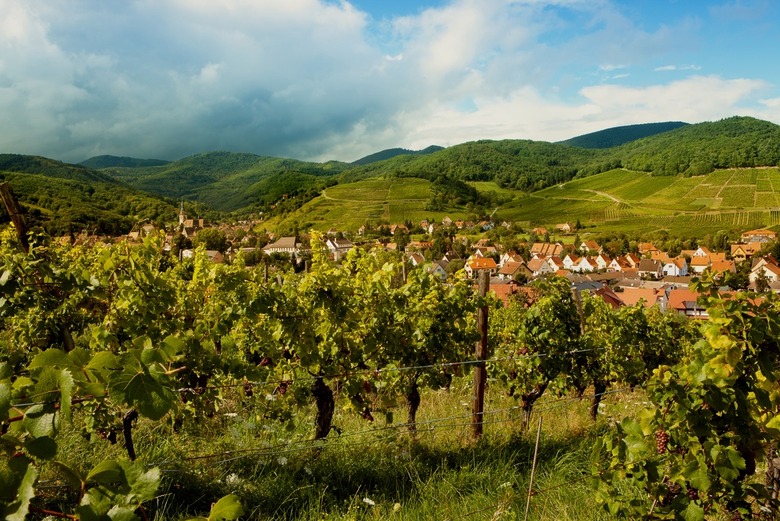The Good Thing About Global Warming Is That It's Making French Wine Even Better, Researchers Say
There's nothing good, per se, about climate change, but the warming of the planet has produced a particularly positive side effect: Better French wine.
According to a new study published in the Nature Climate Change journal, climate change has created optimal conditions for early-ripening fruit in Western Europe, especially France.
In the past, such high temperatures only came with drought conditions, but in recent years, "enhanced warming from anthropogenic greenhouse gases can generate the high temperatures needed for early harvests without drought," according to the study. "Our results suggest that climate change has fundamentally altered the climatic drivers of early wine grape harvests in France, with possible ramifications for viticulture management and wine quality."
Most importantly for winegrowers, high-quality wines are typically associated with early harvests. Heat from global warming has allowed grapes from prominent wine regions like Burgundy to develop sugars and tannins more quickly.
In recent decades, harvest days have been an average of 10.2 days earlier than those from 1951 to 1980, which has also allowed for more frequent harvests. Similar results were confirmed in other wine regions like Champagne, Alsace, and Languedoc, as well as Switzerland. In Bordeaux, climate relationships have remained relatively stable.
"There is a very clear signal that the earlier the harvest, the much more likely that you're going to have high-quality wines," the paper's lead researcher, Benjamin Cook, told NPR.
The benefits of climate change on wine may have its limits, however. In 2003, a particularly hot growing season produced one of France's earliest harvests on record, and "the wine quality was kind of middling," according to Cook. "That suggests that after a certain point, it could just get to be so warm, and the harvest so early, that you move into a situation where the old rules no longer apply."
